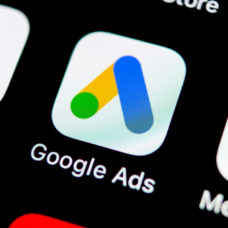Fake news headlines are often more catchy and interesting than the headlines of real stories, and as a result, they spread around the web like wildfire. Automated advertisement algorithms of major companies are funding fake news sites by displaying their ads filled with misinformation and manipulative content.
An ancient institution, the fake news industry (which of course has no clear organization) has been frequently used to lead the public into believing lies or distorted truths for political, social or financial purposes. Media, governments, and celebrities will make misleading statements, fabricate stories or simply lie to gain public favor.
#EdgyLabs shares with you som easy tips on how to avoid spreading #fakenewsClick To TweetHeck, fake news is becoming so ubiquitous that it’s starting to be used as a weapon in order to debunk real news stories. Take one of President Donald J. Trump‘s latest tweets:
Any negative polls are fake news, just like the CNN, ABC, NBC polls in the election. Sorry, people want border security and extreme vetting.
— Donald J. Trump (@realDonaldTrump) February 6, 2017
Ads, the Sinews of Fake News Industry
Major Internet-based companies like Google contribute to the spread of false information. Whether intentionally or not, these companies enable advertising for fake news articles and blogs, giving those sites’ administrators the opportunity to monetize their brand of fake news.
When a fake news story is very successful, and the content goes viral, those responsible for it often make a lot of money from click-through traffic.
The two advertising titans, Google and Facebook, who reap the lion’s share of online marketing, are the biggest enablers of these fake news sites simply by allowing anyone to purchase advertising space, provided it is not blatantly offensive or unsuitable for most audiences.
On Monday, November 14, 2016, a link to a fake news site was the first result of Google News for the query “final election results.” Because of this and other stories like it, many have accused Google and Facebook of having weighed on the subconscious of American voters by enabling the spread of fake information.
Faced with criticism for their potential influence on public opinion, especially after their purported role in the election of Donald Trump, Google and Facebook have decided to cut advertising revenues from fake news sites.
4 Tips to Steer Clear of Fake News Industry
It’s not always easy to detect fake news, and there is no surefire recipe to classify them. Before posting any news on your website or blog, or sharing it on your Facebook page, follow these four simple tips:
1. Be Critical
It’s not always about treating every news that comes your way as dubious, but carefully examining the information is a basic requirement. If the news appeals to your feelings and tempts you to share right away, that’s a red flag.
2. Check the Source
It’s always a good idea to check the source of any assertion to validate it as you consider whether to share that assertion with others.
If the source is a Facebook page, a shady blog or conspirator website, chances are that the news, if not fake, is deformed or exaggerated in one way or another. Know your list of purposely satirical sights and features (i.e. The Onion, The Borowitz Report, etc.).
3. Investigate
Use your search bar to find other sources corroborating the same material in question. Use the “News” tab in search engines to find out which outlets are talking about the subject.
4. Check Authority Opinion
Check what experts are saying. Several reputable news outlets are doing their best to squash the fake news industry, one hoax at a time. Again, a quick search on the web could provide you with more insights.
Try to understand what bias each source takes, if any, to better understand how the information is meant to be perceived.



















Comments (0)
Most Recent